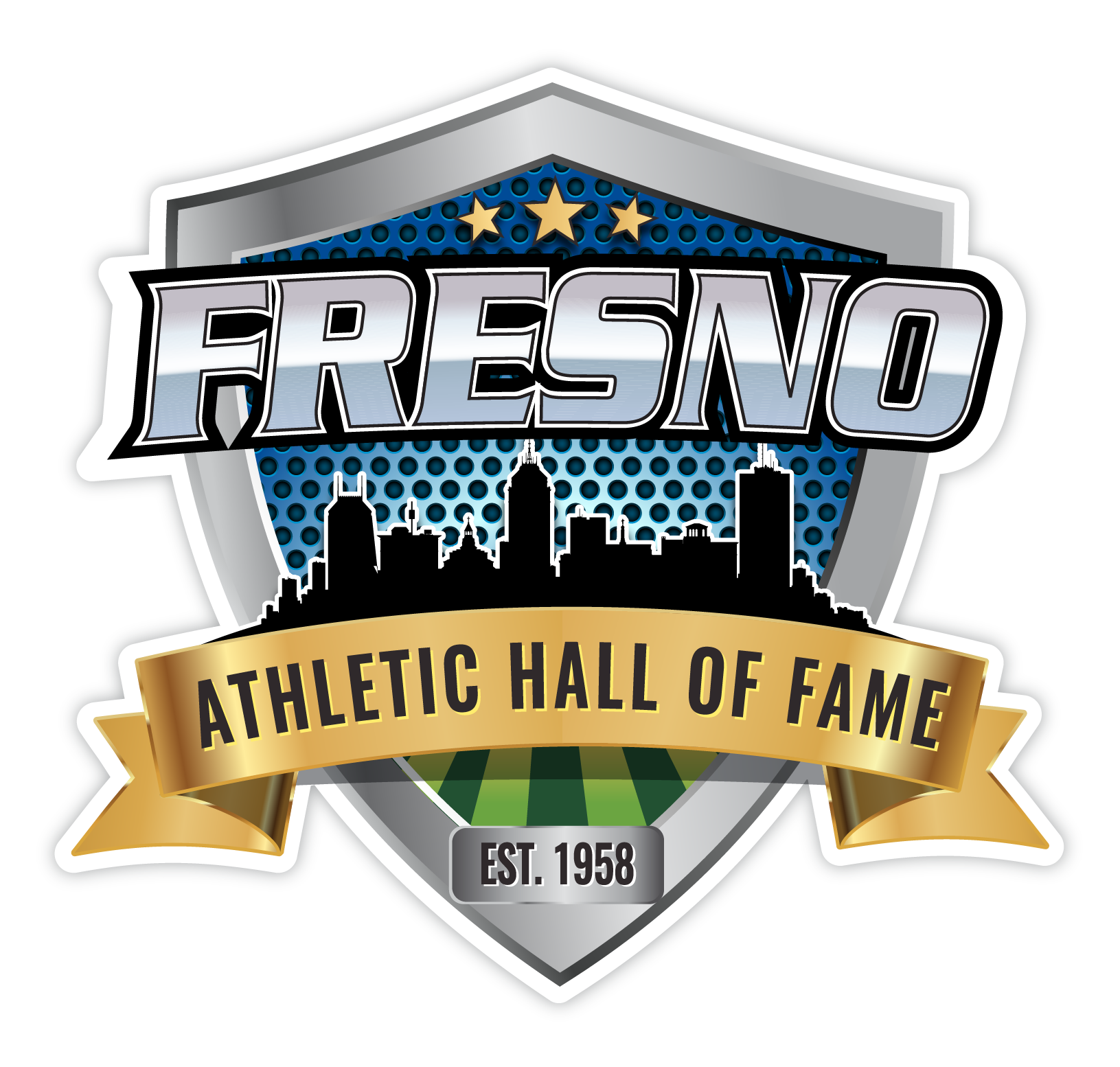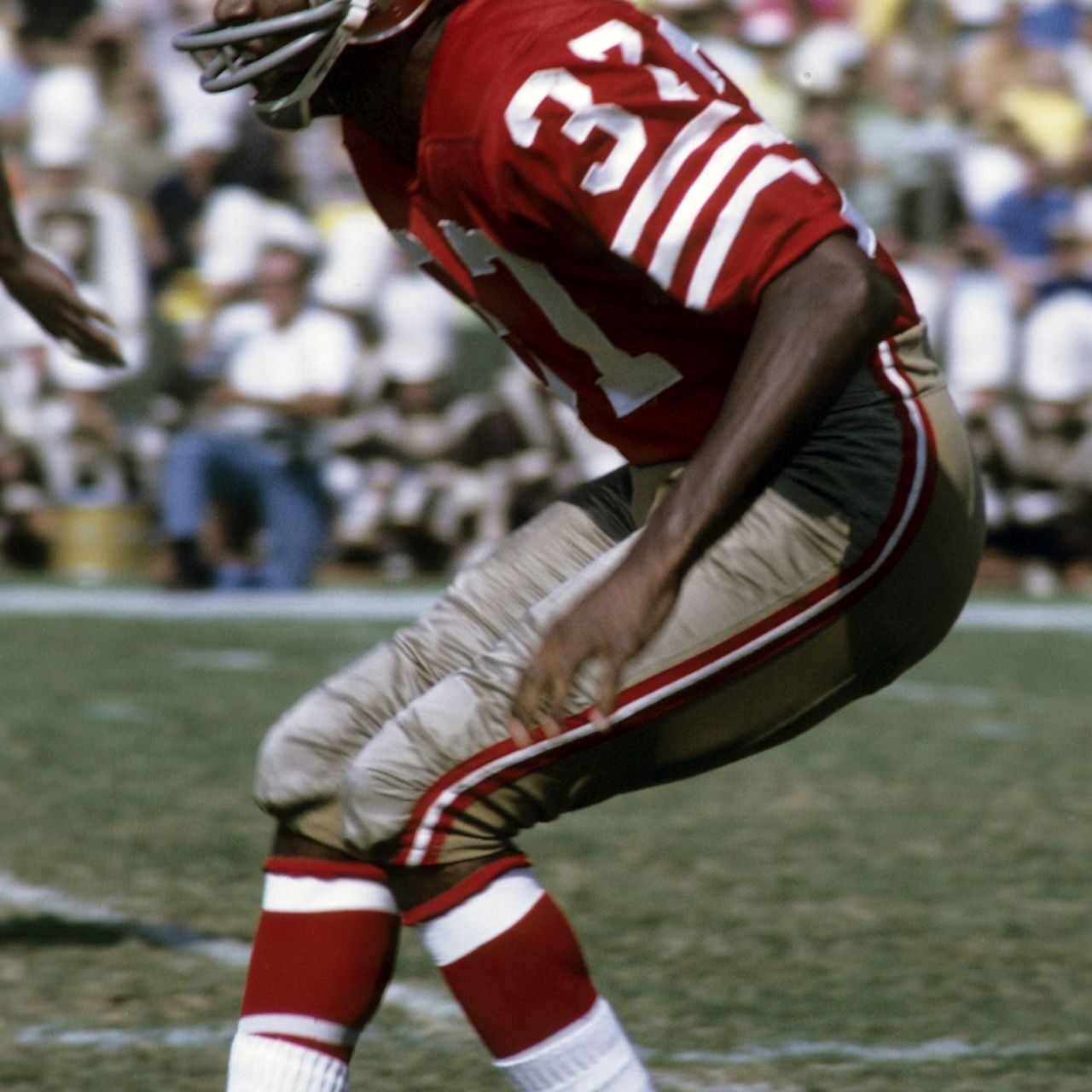
1978 FOOTBALL INDUCTEE
JAMES
JOHNSON

Golf and fishing are his favorite pastimes now, but any long-time San Francisco 49ers follower remembers James “Jimmy” Johnson as one of the great defensive cornerbacks in the history of the NFL. Johnson played sixteen seasons with the Niners and was ushered into the NFL Hall of Fame in 1994. He was a six-time Pro Bowl pick, twice winning the Len Eshmont Award for Courage and etched #37 into Niner lore. At 6’2 1/2″ and 185 pounds with a sprinter’s speed, Johnson could blanket a receiver in one-on-one coverage as well as anyone who played the game and also packed a wallop on run defense. He began to shed the mantle of “Rafer Johnson’s little brother” during his senior year at Kingsburg High School when he captained the football team, tied his brother’s school record in the high hurdles, and broke his sibling’s school long jump record.
Johnson spent a year at Santa Monica Junior College because UCLA wanted him to play just one sport, but he wished to compete in track and football. After earning the football MVP award and winning the state JC high hurdles for the Corsairs, the Bruin coaches allowed him to skip spring football and play both sports. He was an All-American halfback at UCLA and a two-time NCAA high hurdles champion. He failed to make the 1960 U.S. Olympic team by one inch, finishing fourth in a photo finish during the 110-meter high hurdles trials finals. That was the year Rafer won his decathlon gold medal in Rome and James had hoped to be on the same team. Johnson was one of three players drafted in the first round by San Francisco in 1960. The others were Billy Kilmer and Bernie Casey. He had planned to retire in 1975, but stayed an extra year when former Kingsburg teammate Monte Clark was named head coach at San Francisco. Johnson said his first five seasons with the Niners were frustrating because they had him playing multiple positions. “I was drafted as a wide receiver, but I played five or six positions in my early years. I was a running back, cornerback, safety, receiver,” Johnson said. “I played them all. I finally asked coach Jack Christansen if I could just play one position. He let me take my choice.” Johnson played in a team record 210 games and intercepted a record forty-seven passes. His interception numbers might have been higher, but teams were reluctant to throw on his side.
Would Johnson have been able to be as effective today as he was in his prime? “Man-to-man coverage hasn’t changed,” Johnson answered affirmatively. “What has changed is the overall size and speed of the offensive linemen. One of the keys to my success is I never paid attention to the receivers head or shoulder fakes. I concentrated on his midsection. I knew whatever way that went, he would go, too. That way I could react to his final move. I never looked at a receiver as tough, just someone I had to short circuit.” Johnson said Jimmy Orr had his own bag of tricks and talked constantly, complimenting you on your success, complaining about injuries, or how slippery the turf was.
Tommy McDonald was all business, but very good. Johnson related the most difficult play to cover was when a receiver had a wide open field and you couldn’t pin him to the sidelines. “If he had a step on you, then all you could do was hope for help or that the defensive lineman would cause a bad throw. The toughest quarterback was Fran Tarkenton because he could run or throw.” Johnson never forgot his roots. He was captain of the County football team in the annual 20/30 Club’s All-Star game, participated in the West Coast Relays, and loved to drive to Fresno with his family. Johnson said his Kingsburg football coaches, Les Ratzlaff and Charlie Moore, and track coach Merle Dotson were wonderful men. “They started me off right. They treated us as individuals, not just sports stars. They really cared. When I was inducted into the NFL Hall of Fame, Ratzlaff was there for the ceremony. I cherished my time at Kingsburg.” Johnson’s father, Lewis, was a fisherman and taught his sons how to catch fish in the Kings River, at Lake Millerton, and at Bass Lake. James said fishing in those early years helped him and some of his buddies keep their heads screwed on right.
Johnson still enjoys fishing, but plays golf at least once a week, rain or shine. His wife, Gisela was a former airline hostess and his daughter graduated from Chico State. Johnson also participates in NFL Alumni golf tournaments and is often called on as a motivational speaker for local charities or schools and golf events. Since retiring from the Niners, Johnson has been a player agent, Stanford assistant coach and assistant athletic director, a corporate businessman, and has dabbled in radio and television. Not bad for a man who was too small to play varsity in his first two years at Kingsburg.




